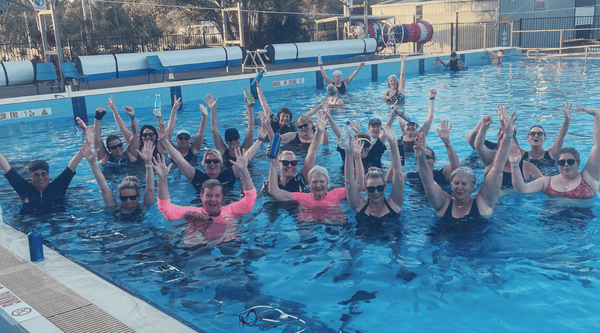Your Cart is Empty
When the weather warms, the plants bloom, and the days get longer, Spring is the best time to take your fitness regimen outside. Here are eight research-backed benefits of outdoor exercise you may not be aware of.
When people exercise outside, they tend to spend more time doing it. One study found that older people who were active outdoors did at least 30 minutes more moderate-to-vigorous physical activity per week than those who only worked out inside. Exercising outdoors also made them feel healthier. Exercising outdoors modulates stress hormones, increasing endorphins and serotonin secretion that brighten your mood.
A study of 160 students from a Sydney school (Jelley 2005) found that a 20-week program on outdoor activities resulted in better fitness, body composition, cardiovascular and muscular endurance, strength, and flexibility than the same exercise indoors. A similar study that compared the perceived rate of exertion for both indoor and outdoor training (Ceci and Hassmen 1991) also found that RPE levels, speed, heart rate, blood, and lactate differed between these two environments, with positive physiological responses much greater outdoors.
Spending time outside is also good for the heart. A study estimated that nearly 10% of people with high blood pressure could get their levels under control if they spent at least 30 minutes outdoors each week, partly because of the heart-related benefits of getting fresh air and lowering stress. In Japan, public health experts recommend people spend time outdoors, a practice called forest bathing or shinrin-yoku. Researchers in Japan have linked forest bathing with lower levels of the blood pressure-raising stress hormone cortisol. While we don't yet have areas for forest bathing, an outdoor pool set among one of the most spectacular coastline forestries between Currimundi Beach and the mouth of Currimundi Lake comes close. Check out the spectacular Sunshine Coast Recreational Centre. Recreational Centres like this one in Currimundi provide active outdoor adventure programs and support community programs.
Some research suggests that outdoors, people inhale aromatic compounds from plants called phytoncides. These can increase the number of natural killer cells, a type of white blood cell that supports the immune system and is linked with a lower risk of cancer. These cells are also believed to be important in fighting infections and inflammation, a common marker of disease.
In one study, researchers found that people who exercised outdoors for two days in a row increased their natural killer cells by 50% and the activity of these cells by 56%. Those activity levels also remained 23% higher than usual for the month following.
When people exercise outside, they feel better and enjoy the exercise more, studies suggest. Enjoyment is an important pathway to the mental health impacts of physical activity. Exercising outside is also an excellent alternative for those who don't want to go to the gym.
A review of research found that people who exercised outside reported feeling more revitalized, engaged, and energized than those who did it indoors. The researchers also found that people who exercised outside felt less tension, anger, and depression.
It's a natural antidepressant. Outdoor exercise can help ward off seasonal affective disorder (SAD), depression, and anxiety because sunshine naturally increases serotonin, a hormone that affects your mood. And exercise itself produces endorphins, another feel-good hormone that boosts your mood and reduces pain.
The outdoors has a way of making people feel calm, and exercising outside can strengthen that effect. A small 2015 study found that people who exercised for 90 minutes outside were less likely to ruminate on their problems and had less activity in the brain area linked to depression compared to people who took similar walks but in urban areas. Nature stimulates a distraction from all the stresses of life.
For most of us, the majority of our time is spent in an indoor environment. Outdoor training will help ensure we receive adequate 'the sunshine vitamin levels.'
When exposed to the suns UVB rays, our bodies automatically convert cholesterol in our skin into vitamin D3. Vitamin D deficiency is common and linked to an increased risk of many chronic diseases, such as osteoporosis, heart disease, and some cancers.
In our weather, our skin needs consistent daily sun exposure to maintain adequate levels. How much is required is different for everyone and is influenced by ethnicity, amount of skin exposed, age, and the UV index.
Exercising outdoors and in water is a powerful combination packed full of benefits. Aquatic water resistance exercise improves flexibility and strength, builds endurance, increases muscular flexibility and balance, strengthens the heart, improves the physique, increases circulation and rehabilitates muscles as well as improves overall quality of life.
